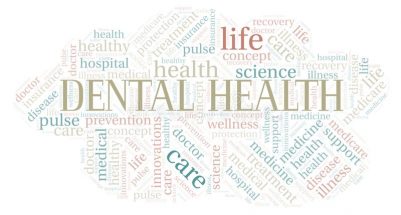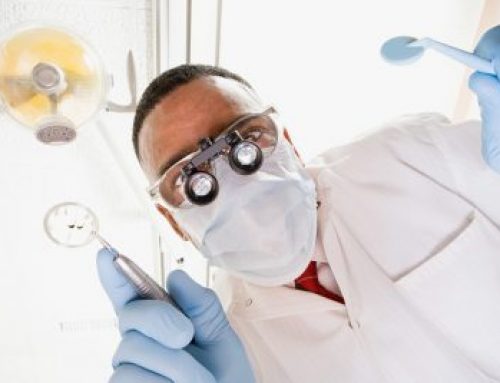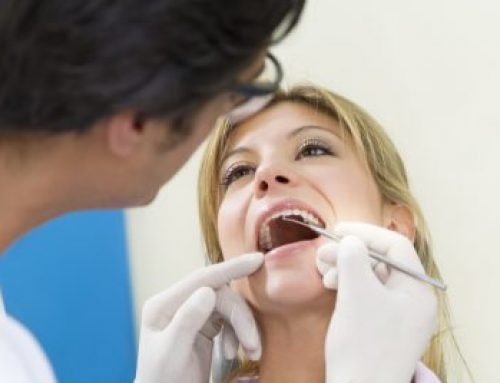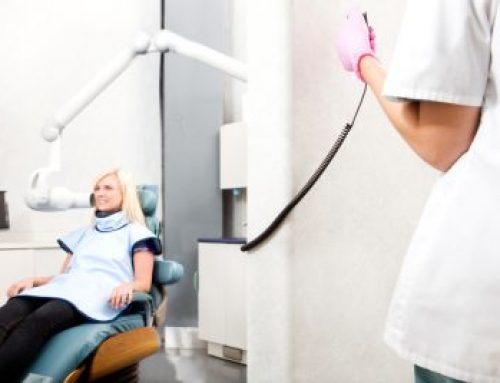 Dentistry. Non-essential. Health Care. Unfortunately, these three words have been forced together during the recent COVID-19 pandemic. As dental offices are reopening or are preparing to reopen across the country, the main focus for dental healthcare providers should be how can, we as a profession, best protect our patients, our teams and ourselves from things like COVID-19, and reduce the risks associated with systemic diseases in general?
Dentistry. Non-essential. Health Care. Unfortunately, these three words have been forced together during the recent COVID-19 pandemic. As dental offices are reopening or are preparing to reopen across the country, the main focus for dental healthcare providers should be how can, we as a profession, best protect our patients, our teams and ourselves from things like COVID-19, and reduce the risks associated with systemic diseases in general?
One of the main struggles thus far in combating COVID-19 has been identifying effective strategies to protect the highest at-risk populations and developing strategies to lower their risk of severe complications associated with COVID-19 infection. Dental healthcare providers are uniquely positioned to do this for their patients moving forward.
Recently, in the British Dental Journal, author V. Sampson stated the following, “Oral hygiene should be improved during a COVID-19 infection in order to reduce the bacterial load in the mouth and the risk of a bacterial superinfection. We recommend that poor oral hygiene be considered a risk to COVID-19 complications, particularly in patients predisposed to altered biofilms due to diabetes, hypertension or cardiovascular disease. Bacteria present in patients with severe COVID-19 are associated with the oral cavity, and improved oral hygiene may reduce the risk of complications.”1 This very concisely makes a clear case that dentistry is essential healthcare and should be considered as such in light of COVID-19.
In a recent study, the three main underlying health conditions that were associated with increased complications of COVID-19 infection were diabetes, hypertension, and cardiovascular disease.2 While COVID-19 is of viral origin, it is suspected that, in severe cases, bacteria plays a part increasing the chance of complications such as pneumonia, acute respiratory distress syndrome, sepsis, septic shock and death.3 It was also found that in severely infected COVID-19 patients, high reads of three bacteria commonly associated with periodontal disease, Prevontella, Staphylococcus, and Fusobacterium, were present.4 All three bacteria are common organisms found in the mouth and periodontal bacteria have been implicated in systemic inflammation, bacteraemia, and pneumonia.5
Dentists can easily find evidence of gum disease-causing bacteria creating challenges in tissues throughout the body. Research has confirmed that chronic, low-grade infections in the mouth increases systemic inflammation and has an impact on every system in the body.
The mountain of evidence that supports the oral health-overall health connection has seen incredible growth and advancement over the past few years. There is no longer a question as to “if” the soft tissues in the mouth are connected to the rest of the body. Research shows that more than 90 percent of all systemic diseases have signs and symptoms that dental healthcare professionals can see in your mouth. There are many systemic diseases dental healthcare providers can discover with a thorough examination and help develop a treatment plan to the risk of these diseases for patients. The list includes:
- Vitamin deficiencies
- Acid reflux
- Stress & anxiety
- Tooth grinding
- Cancer
- Heart Disease
- Diabetes
- Kidney Disease
- Alzheimer’s Disease
- Dementia
- Osteoporosis
- Asthma
- Arthritis
- Premature births
- Low birth weight babies
- Respiratory problems
- Coronary artery disease
- Stroke
- Mental health issues
- Sleep Disorders
- Eating Disorders
These facts should force us to rethink oral health and the importance of seeing a dentist regularly. Often times it will be the dentist that will identify the sign and symptoms of systemic disease during a regular, thorough oral examination. The significance of the numerous oral health-systemic health connections highlights the importance of preventing and treating oral disease which has mounting and profound medical impacts on whole-body health.
COVID-19 has been a wakeup call for the entire world regarding our collective health. Now, more than ever, dental healthcare providers need to embrace our vital role in maintaining and improving overall health and wellness in patients. We don’t just fix or clean teeth. We keep patients healthy and reduce the risk of systemic disease.
References:
1 Sampson, V. Oral hygiene risk factor. Br Dent J 228, 569 (2020).
2 Zhou F, Yu T, Du R et al. Clinical course and risk factors for mortality of adult inpatients with COVID-19 in Wuhan, China: A retrospective cohort study. Lancet 2020; 395: 1054-1062.
3 World Health Organization. Clinical management of severe acute respiratory infection when COVID-19 is suspected. Interim guidance, 13 March 2020. Available at: https:// www.who.int/publications-detail/clinical-management-of- severe-acute-respiratory-infection-when-novel-coronavirus- (ncov)-infection-is-suspected (accessed April 2020).
4 Chakraborty S. Metagenome of SARS-Cov2 patients in Shenzhen with travel to Wuhan: OSF Preprints, 2020.
5 Nagaoka K. Prevotella intermedia induces severe bacteremic pneumococcal pneumonia in mice with upregulated platelet-activating factor receptor expression. American Society for Microbiology, 2014.





